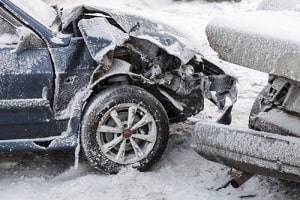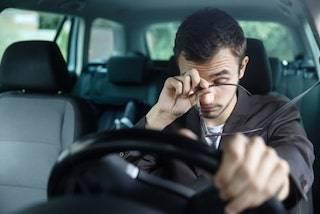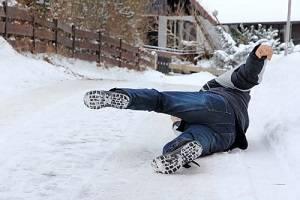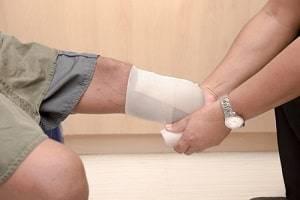Recent Blog Posts
How Common Are Winter Car Accidents in Illinois?

While car accidents occur for a wide variety of reasons, adverse weather conditions are one common factor in collisions that take place in Central Illinois. Winter weather can be especially dangerous. Of the 1.2 million weather-related car accidents that occur every year in the United States, 29 percent take place on icy, snowy, or slushy pavement, and 18 percent occur while snow or sleet is falling. Studies have found that Illinois is one of the deadliest states for winter driving, with an average of 27 fatal car accidents taking place during the winter each year. In some cases, a personal injury claim can provide compensation for injuries suffered in a winter auto accident caused by a negligent driver.
Causes of Winter Vehicle Crashes
Winter weather presents a number of risks that can affect drivers, and accidents can occur if drivers fail to account for winter conditions or do not take steps to drive safely in inclement weather. Collisions may take place during the winter because of:
Can I Receive Compensation for Snowmobile Accident Injuries?

While snowmobiling is a fun winter activity that is enjoyed by many people in central Illinois, it can also be dangerous. Collisions between two snowmobiles or between snowmobiles and people, obstacles, or other vehicles can result in serious injuries, including broken bones, traumatic brain injuries, spinal cord injuries, severe lacerations leading to amputations, and damage to internal organs. If a snowmobile accident occurs in a remote area, a person could be left alone in harsh weather until help arrives, which can lead to hypothermia or other life-threatening medical conditions. Those who have suffered injuries in snowmobile accidents will want to determine who was responsible for a collision, and by working with a personal injury attorney, they can take steps to receive financial compensation for their injuries.
Unique Obstacles in Pursuing a Loose Truck Cargo Accident Claim

Flatbed trucks, 18-wheelers, and other large commercial trucks haul everything from building materials to hazardous chemicals to household products. Most of the goods we use on an everyday basis were transported by truck at some point. When truck cargo is not properly loaded and secured in the truck, the results can be horrific. If you or a loved one were injured in a car accident caused by loose or fallen truck cargo, you may be able to bring a personal injury claim against the at-fault party. You may be entitled to compensation for your medical bills, pain and suffering, and more. However, you may need to overcome certain obstacles in order for your claim to be successful.
Proving an Accident Was Caused by Loose or Fallen Cargo Truck
Truck accidents can lead to costly property damage and severe or even deadly injuries. A personal injury claim may help you hold a negligent party accountable for a truck accident and recover compensation for damages. However, to win your truck accident claim, you will need to prove that the defendant’s negligent actions caused your injuries and that you sustained damages. Proving that an accident was the result of loose or fallen truck cargo is rarely easy. For example, you may have been involved in a car accident while swerving to avoid fallen truck cargo. Other individuals involved in the accident may even try to pin fault for the accident on you. Issues like these often make fallen truck cargo claims even more complex than other types of truck accident claims.
Drowsy Drivers Are a Danger to Motorists, Cyclists, and Pedestrians

Most adults struggle to get enough sleep at night. Whether it is a tight deadline at work, child-related responsibilities, insomnia, or another cause, studies show that a large percentage of Americans are sleep-deprived. Inadequate sleep can have a major impact on a person’s physical and mental functioning. When a sleep-deprived individual gets behind the wheel of a car, he or she is significantly more likely to be involved in a car accident than someone who got enough sleep. Vehicle crashes caused by fatigued drivers lead to thousands of injuries and deaths each year.
Do Not Underestimate the Effect of Sleep Deprivation on Driving
Healthy habits like eating vegetables, exercising, and getting enough sleep are often hard to maintain. Life circumstances often get in the way of our good intentions. However, getting behind the wheel of a car when you are too sleepy to operate it safely not only puts your life in danger but also the lives of those around you. Sleep deprivation negatively affects a person’s reaction time, problem-solving skills, coordination, and other cognitive processes. In fact, the National Safety Council reports that driving after being awake for 20 hours or more is equivalent to driving drunk in terms of impairment. People who are severely sleep-deprived may even experience instances of “micro-sleep.” These short bursts of sleep are involuntary and often occur without the person’s knowledge. Although fatigue is linked to approximately 1000,000 car accidents each year, many people underestimate the effect sleepiness has on their ability to safely drive.
Can I File Both a Third-Party and a Workers’ Compensation Claim?

Work-related injuries can happen for countless reasons. Some injuries are caused during a singular work accident while other injuries occur from repetitive movements over time. Falling from a great height, being struck by falling objects, equipment-related injuries, and other workplace injuries can lead to massive medical bills and other financial harm. If you or a loved one have suffered a work injury, you may be curious about your legal rights. You may already know that you are entitled to workers’ compensation for certain work injuries, but you may not know much about bringing a claim against a third party. If your work injury was caused by the negligent or wrongful actions of a party other than your employer, you may be able to sue that party for damages.
Bringing a Personal Injury Claim for a Work Accident
Can I Receive Workers’ Compensation for a Repetitive Motion Injury?

Most Illinois employers are required to carry workers’ compensation insurance. The purpose of this insurance is to provide financial compensation for employees who are injured on the job. However, proving that an injury was sustained at work and successfully recovering compensation through a workers’ comp claim is often more challenging with repetitive motion injuries (RMI). The source of these injuries is often more difficult to pinpoint and some insurers and employers use this as an excuse to downplay the severity of the injuries or claim that the injury predated employment. If you have sustained a repetitive motion injury at work, you should know your rights under Illinois workers’ compensation laws.
What Are Repetitive Strain Injuries?
If a worker falls from a ladder and breaks his or her leg at work, there is little question as to how the injury occurs. However, this is not the case for injuries that occur over long periods of time. A repetitive strain injury (RSI) is one that occurs from using the same body parts over and over again. The damage may occur to a person’s nerves, tendons, muscles, or joints. RSI may be caused by:
What Are My Rights if I Was Injured in an Illinois Truck Accident?

Severe truck accidents are not uncommon in the United States. The Federal Motor Carrier Safety Administration (FMCSA) estimates that 112,000 large trucks were involved in injury-causing crashes in 2018 alone. When a car accident involves a large truck such as a semi-truck, the consequences can be catastrophic. Numerous state and federal laws regulating large trucks have been instituted in an effort to prevent truck collisions, but unfortunately, thousands of people are injured and killed in truck accidents each year in the United States. If you or a loved one were seriously hurt in an auto accident involving a large truck that was speeding, you may be entitled to financial compensation.
Recovering Damages After a Truck Accident Caused by Speeding
The majority of goods that are transported across the country are transported via truck. Truck drivers are often expected to meet tight deadlines and may deal with unexpected delays caused by inclement weather or heavy traffic. In an effort to meet these deadlines, truck drivers may drive above the speed limit or drive too fast for the conditions. Speeding greatly increases the chances of a truck being involved in an accident.
Are Homeowners Liable for Injuries Caused by Conditions on their Land?

The Midwest can get down to single-digit temperatures in the winter. If you are like many Illinois residents, dealing with snow and ice is a major part of your life in the winter months. Not only is snow and ice a hassle to deal with, but it can also lead to serious or even life-threatening injuries. If you slipped on ice and fell or otherwise suffered an injury because of snow or ice, you may be interested in learning about your legal options. In Illinois, a piece of legislation called the Snow and Ice Removal Act describes the rights and responsibilities individuals have regarding snow and ice removal.
Do Homeowners Have to Remove Snow and Ice?
Most people agree that shoveling snow from sidewalks, walkways, steps, and porches is part of being a good neighbor. However, homeowners are not required to remove snow from sidewalks by state law. The Illinois Snow and Ice Removal Act was passed in 1979 to address snow and ice removal and injuries caused by snow and ice on private property. According to this legislation, homeowners are not typically liable for injuries caused by snowy or icy conditions on their property. However, a homeowner may be legally responsible for snow or ice injuries in certain circumstances.
What Happens if I Am Partially to Blame for My Car Accident?

When a traffic accident occurs, everyone involved usually has an interest in establishing which party caused the accident. This determination is generally used to establish who will be financially responsible for the damages caused by the collision. Sometimes, the fault is quite clear, such as in a case where a careless driver crashes into the rear of a vehicle that is sitting at a traffic light. In other cases, determining blame is more complicated, as any number of drivers could have played a part in causing the crash. If there is more than one party with at least some fault for a car accident, the liability for any resulting injuries or damages could be shared also.
Types of Shared Fault Models
Each state maintains its own laws regarding how liability may be shared when the plaintiff in a personal injury case is partially at fault for the incident in question and states generally use one of three basic models. The first model is called “pure contributory fault,” which is used in just four states, as well as Washington, D.C. Under this rule, the injured party can only collect compensation as long as the victim had no fault at all for the crash. Even if the defendant was 99 percent at fault and the plaintiff was 1 percent to blame, the plaintiff is barred from collecting damages.
Illinois Personal Injury Claims Involving Amputation of a Limb

A personal injury claim is a legal action that allows an injured person to pursue financial compensation for the damages, or losses, caused by an injury. Often these injuries are the result of work accidents, car accidents, or other incidents caused by another party’s negligence. Amputations are considered “catastrophic injuries,” meaning that they have a profound impact on the injured person’s life. If you or a loved one suffered limb loss in an accident, you may be entitled to financial compensation for your medical expenses and other damages as a result of the injury.
Pursuing Compensation After a Traumatic Amputation
Few injuries compare to amputations. The loss of a hand, arm, leg, or foot can lead to long-term medical complications, severe pain, and permanent disability. Consequently, the compensation awarded to an amputation victim in a personal injury claim is often considerable. Traumatic amputations are often the result of:









